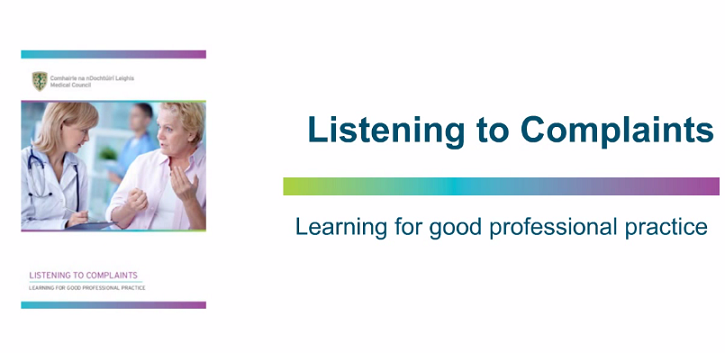UCC research shapes Medical Council review

Professor Deirdre Madden of UCC’s School of Law and Dr Orla O’Donovan, Applied Social Studies were behind the qualitative findings of the report which received national media attention.
The Medical Council's first-ever comprehensive review of complaints it has received - examined some 2,000 complaints over a five-year period
— Drivetime RTE (@drivetimerte)
July 13, 2015
The report is the first-ever comprehensive review of complaints to the Medical Council. The Listening to Complaints, Learning for Good Professional Practice report looks at 2,000 complaints over a 5-year period and was published during a seminar at Dublin Castle.
Professor Madden commented that while quantitative studies have previously taken place, it was the first time the Medical Council has carried out a qualitative review. Dr O'Donovan and Professor Madden won the tender to carry out the research, which culminated in 'A Qualitative Review of Complaints submitted to the Medical Council between 2008-2012 and Doctors' Responses.'
Speaking about the overall findings of both reports, President of the Medical Council Professor Freddie Wood said: “This comprehensive and in-depth review is the first of its kind in Ireland and is a really significant report both for the Council and the wider health system. I hope that by reflecting on the findings and looking at the most common causes of complaint, we can work with our partner organisations to reduce such instances in the future, and improve the collective response to concerns about doctors’ practice for the benefit of both members of the public and doctors.”
This analysis pinpointed many factors involved in complaints. While questions about medical knowledge and skill featured in complaints, poor experience of doctors’ attitudes and behaviours commonly motivated complainants: communication with patients, caring with compassion and empathy, treating patients with dignity and respect and relating effectively with patients’ families.
The full report can be found here.
Qual review by myself & Dr Orla O Donovan @UCC on causes, motivations, effects of complaints http://t.co/8zH5yYzJbi
— Deirdre Madden (@deirdre_dm)
July 13, 2015
Further findings from the report include:
- Male doctors were over twice as likely to be the subject of a complaint in comparison to their female counterparts. Complaints against male doctors were also more likely to proceed to Fitness to Practise Inquiry.
- Of 221 complaints which proceeded to inquiry by the Fitness to Practise Committee from 2008-2012, 68% resulted in findings being made in relation to doctors’ practice and sanctions were applied in all cases by the Medical Council.
- Highlighting the fact that employers have greater insights into doctors’ practice, complaints from the HSE and other healthcare organisations were more likely to proceed to a Fitness to Practise Inquiry and were also more likely to result in a finding about the doctor’s practise. However, only 3% of complaints made to the Medical Council were from the HSE and other healthcare organisations.
- Doctors who qualified in Ireland were less likely than internationally qualified doctors to experience a higher impact outcome through the disciplinary process.
- The qualitative study identified that some work contexts presented more complaint-prone environments: psychiatry, cosmetic surgery, obstetrics and gynaecology and locum/out-of-hours.
Professor Wood continued: “Today we have also published our draft Guide for Professional Conduct and Ethics which has been reformulated and specifically informed by issues highlighted in this report. We look forward to receiving feedback from partner organisations, doctors and members of the public on this draft guide before its finalisation. It is crucial now that we work with the wider health sector to collectively learn from complaints so that they are handled at the right level and dealt with in the most appropriate manner.”
Read @thejournal_ie piece on @deirdre_dm et al report on Medical Council Complaints : http://t.co/M97NKolxLN @UCC
— UCC School of Law (@LawUCC)
July 13, 2015
Doctors responses to complaints include distress, shock, disappointment, concern about negative publicity, says Prof Deirdre Madden of UCC
— Medical Independent (@med_indonews)
July 13, 2015
A mixed method approach was used to produce this report combining quantitative and qualitative methods in order to describe the trends in complaints made to the Council by source of complaint and demographic and to identify factors which cause concern among complainants in relation to doctor’s practice.
